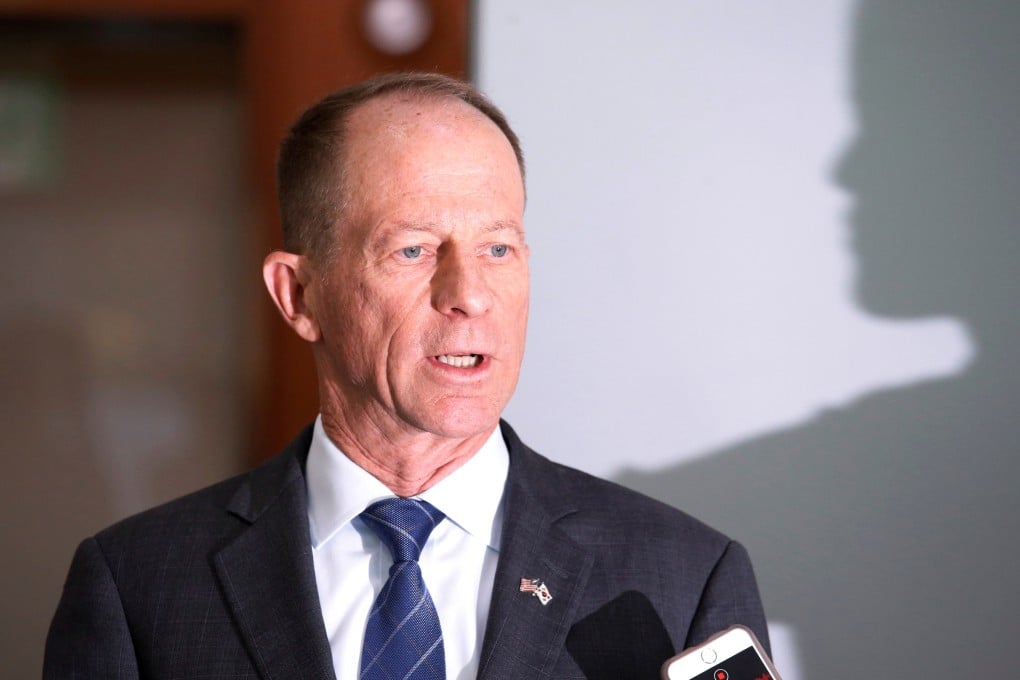Advertisement
US and China both looking for respect, says former assistant secretary of state David Stilwell
- The former official tells a seminar that both sides need to overcome basic problems such as trust and understanding to make progress
- Stilwell warns that the American side has sometimes been too quick to make concessions while the Chinese wait for an opportunity
Reading Time:2 minutes
Why you can trust SCMP
19

A former senior Washington official has said the United States and China must build mutual respect if they are to engage effectively.
“We can’t really fix the high-level relationship until we get over these basic issues of trust and understanding [between the two countries],” David Stilwell, who stepped down as assistant secretary of state for East Asia and Pacific Affairs earlier this year, told a recent East-West Centre China Seminar talk.
He added that when two countries engage, their differences can appear less stark. “We actually have some things in common and that becomes the basis for further negotiations. This is the essence of diplomacy.”
Advertisement
Stilwell argued that both China and the US are seeking “respect” but in different ways – China needs the US to respect its system of governance while the US wants Beijing to respect global rules and norms.
“So we have got the same word, ‘respect’, touching on different issues, but to me this is an area where we can open a conversation,” he said.
Advertisement
The former diplomat said it is essential for policymakers to understand the serious differences in how the two sides view engagement.
Advertisement
Select Voice
Select Speed
1.00x